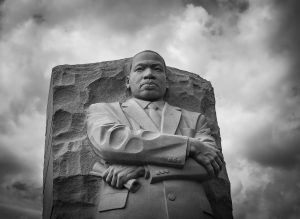The Intersection of Family Law and Social Change
The legal system is a reflection of society, constantly evolving and adapting to the changing needs and values of its people. Family law, in particular, plays a crucial role in shaping social norms and beliefs surrounding the concept of family. But with the ever-growing influence of social change, how does family law navigate through these challenging and often conflicting perspectives? In this article, we will delve into the intersection of family law and social change, exploring the dynamic relationship between the two and its impact on our understanding of family.
A Brief Overview of Family Law
Before we dive into the intersection of family law and social change, it’s essential to have a basic understanding of family law itself. Family law is a branch of law that deals with legal issues concerning family relationships, such as marriage, divorce, child custody, adoption, and other related matters.
Historically, family law has been heavily influenced by religious and cultural beliefs regarding the family structure. But as society continues to evolve, so does the definition and understanding of family.
The Evolution of Family Law
From Traditional to Modern Family
Traditionally, the concept of family revolved around the nuclear family model – a married heterosexual couple with children. However, with social change came a more diverse understanding of family, including single-parent families, cohabiting couples, and same-sex couples.
In response to this shift, family law has expanded to recognize and protect the rights of these non-traditional families. For example, same-sex marriage is now legal in many countries, and adoption laws have been amended to allow same-sex couples to adopt children.
Gender Roles and Parental Rights
Along with changes in family structure, there has also been a significant shift in traditional gender roles. In the past, the law often favored mothers in child custody arrangements, assuming that they were the primary caregivers.
But as more and more women entered the workforce and took on equal roles in parenting, family law evolved to recognize both parents’ rights and responsibilities. Today, custody decisions are made based on the best interests of the child, rather than based on gender stereotypes.
Domestic Violence and Protection Laws
Another social issue that has greatly influenced family law is domestic violence. In the past, domestic violence was not seen as a criminal offense and was often considered a private matter within the family.
But with the rise of social movements and advocacy for victims of domestic violence, family law has strengthened its protection laws for victims and imposed stricter punishments for perpetrators of domestic violence.
The Impact of Social Change on Family Law
The ever-changing social landscape has had a significant impact on the development and understanding of family law. Social changes such as the feminist movement, LGBTQ+ rights, and the emphasis on children’s rights have influenced legal reforms and challenged traditional notions of family and gender roles.
As a result, family law has become more inclusive and diverse, acknowledging the different structures and dynamics of today’s families. It has also become more progressive and responsive to the changing needs and values of society.
The Ongoing Debate
Despite the progress made in reconciling family law with social change, there is still an ongoing debate on the extent to which society should influence the legal system.
Some argue that family law should remain rooted in traditional values and religious beliefs, while others believe that it should adapt to the changing needs and realities of modern families.
This debate brings us back to the question – how does family law navigate through these complex and often conflicting perspectives?
In Conclusion
The intersection of family law and social change illustrates the dynamic relationship between law and society. Social change challenges traditional values and beliefs, forcing family law to evolve and adapt to address these changes.
As we continue to move towards a more inclusive and diverse understanding of family, our legal system must reflect these values and continue to strive towards justice and equality for all families.
In the end, it is the responsibility of both the legal system and society to ensure that family law continues to evolve with the ever-changing needs and values of the people it serves.











